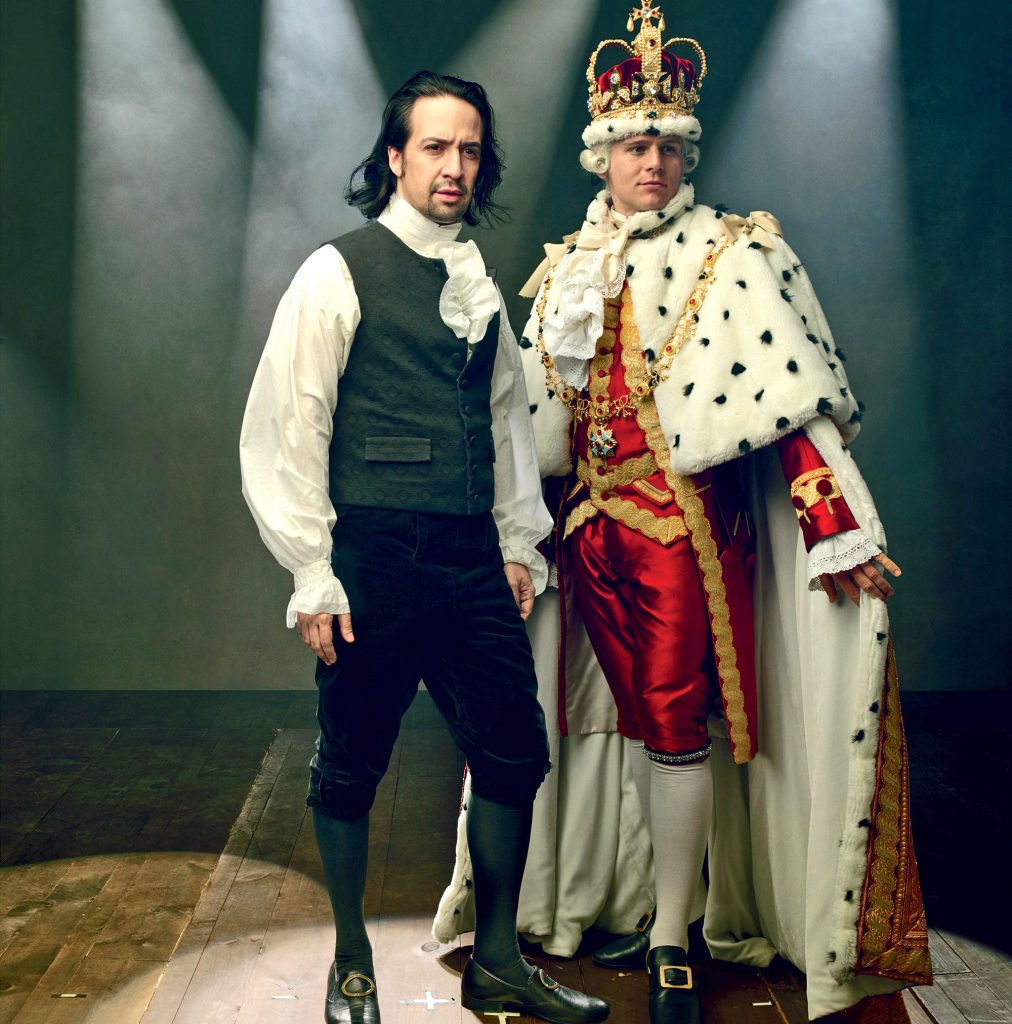
Disney may have hit the motherlode when it bought the film rights to Hamilton for $75 million, but both theater lovers and film buffs are reaping big entertainment rewards from the move. Originally intending to release the film version of the worldwide Broadway smash in movie houses next year, the Covid pandemic caused Disney’s strategists to rethink their game plan. Transferring the film version of Hamilton to their digital platform, Disney Plus, the Broadway blockbuster was instead made available for streaming earlier this month on July 3rd. Three days later, according to Variety, it had already been downloaded almost a half million times around the world.
What’s it like? For anybody accustomed to watching theatrical performances on television PBS style, this experience is like riding in a Rolls Royce that’s been tricked out to run like a Lamborghini. It’s the best of two worlds, theater and film. Lin-Manuel Miranda’s brilliant story of a crucial, non-native born player in the founding of the United States, with its thick hip-hop accent and impeccable construction, redefines theater for a new generation and for the new millennium. Using Ron Chernov’s prize winning biography as his inspiration, Miranda’s musical includes a dense forest of personal and national subplots that make the man and his impact on American history fascinating.

Several important decisions helped insure the scale of the film version’s success. Deciding not to fix what wasn’t broken, the production team kept not only the original cast, but also the original director, Thomas Kail, who took home one of the play’s 11 Tony awards. Crucially, they also chose to use more cameras than are usually used to record theatrical performances. Six were used in Hamilton and their presence was a major part of the film’s game changing impact. Cameras took the audience inside the production and onto the stage; essentially obliterating the distance between the actor and the audience. London’s National Theater used similar techniques in its televised version of A Street Car Named Desire and other plays; but in Hamilton, the devise receives generous treatment; intensifying individual performances and sharpening the storyline. The actors who received Tony awards for their performances, Renee Elise Goldsberry, Daveed Diggs, Leslie Odum Jr., and Phillipa Soo each benefited from the close-frames that magnified the excellence of their work. And even without a Tony of his own, Jonathon Goff’s droll portrayal of King George III was custom made for the close-ups lavished on his comically detached, sometimes catty character who could easily lapse into the language of ruthless despotism.

Even if you’ve been fortunate enough to catch a live performance of the play in New York, Chicago or London, Hamilton the movie still feels brand-new. In a dynamic musical, action and speech can wiz by, leaving you unsurprised if you don’t catch every word or sliver of plot. Thanks to the film’s superb sound quality, Hamilton’s clarity is matchless; boosting comprehension exponentially and providing a clearer appreciation of how much is packed into this brilliant creation.

Piling in heaps of memorable choreography onto such a strong play couldn’t have been easy, but Andy Blankenbueler, who already had a Tony from working with Mr. Miranda on In the Heights, knew the best way to complement the show’s exceptional songs. “Just stay out of the way of the lyrics” and make sure the dancing re-enforces the truth of the story points. That thinking got him another Tony for Hamilton and the audience another thing swoon over. By the time the credits roll, you’re left a little dumbfounded and dazed from the pleasure of losing yourself in something so generously rich in enjoyment.